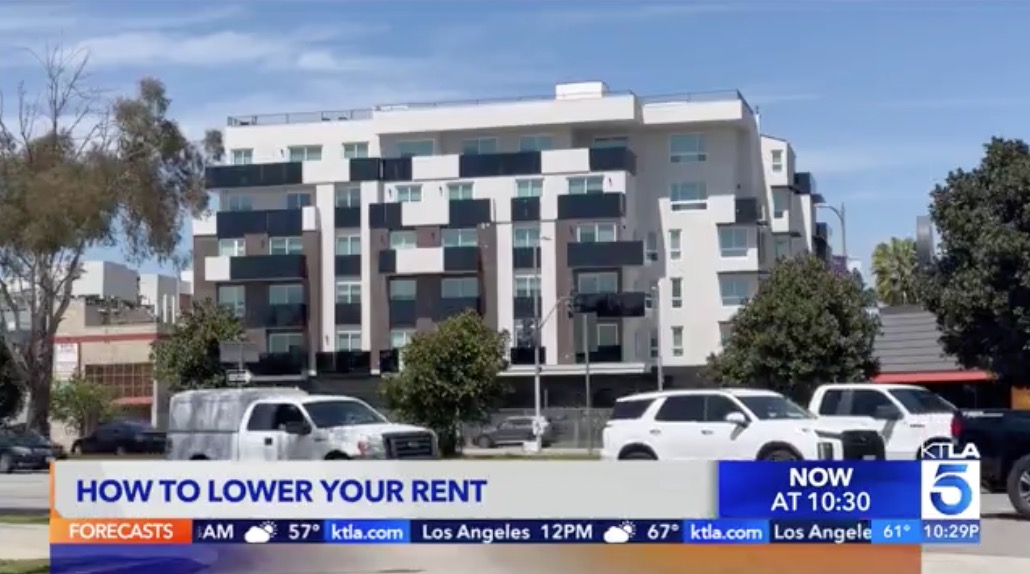Finding a new apartment can be a challenging experience, especially if you have an eviction record on your rental history. Evictions can be a very scary situation for a renter and can impact future rental experiences.
Evictions came to the forefront of the public conversation as the COVID-19 pandemic rattled our economic systems. However, eviction notices were pervasive even before coronavirus. On average, landlords file 3.6 million eviction cases per year in the U.S.
What is eviction?
Before going through a rental application process, it’s important to understand what eviction is. Eviction is a court-ordered process that allows landlords or property managers to legally remove tenants from their property. This usually happens when a tenant stops paying rental payments or breaks their lease agreement in another legally-binding way.
Are evictions public information?
Evictions are entered into public record when they are filed in the legal system by the landlord or property manager. The amount of detail available in the public record is completely dependent on what state it’s filed in.
How do you find out if you’ve ever been evicted?
To find out if you’ve ever been evicted, you can check your state’s database of public records for your name. If you’ve lived in multiple states in the past seven years, be sure to research all of them. If you’ve been legally evicted, there will be a public record available attached to your name.
Does an eviction impact your credit score?
While a prior eviction is included in the public record viewable by future landlords, an eviction alone will not impact your credit score. However, if you fail to make rent payments and are sent to a collections agency, that will impact your credit. Having your name tied to a collections action will most likely decrease your credit score.
What is a tenant screening service?
A tenant screening service is usually a reporting agency that conducts a background check into all kinds of data and reports, such as credit history, rental history reports, criminal history, eviction history, and sex offender status. Potential landlords use this service when reviewing rental applications to decide who should live in their rental property.
How long does an eviction stay on your record?
If an eviction case is filed by the property management company or landlord, it will remain on the public record for up to seven years.
Can you get an eviction removed from your rental history?
Before going through the process of trying to remove a past eviction from your rental history, check your state’s database for eviction notices in your name. If your eviction was less than seven years ago, it will likely show up, but be sure to check before going through this process of eviction removal.
How to get an eviction removed from your rental history
There are a few ways to remove an eviction from your public record.
Take legal action
If you believe you were wrongfully evicted, take legal action. If you cannot pay for legal support, there may be a legal aid organization in your local area that can help you.
Pay outstanding rental payments
If you have outstanding debt, pay the property owners the money they’re owed.
Ask to have collections action taken off of your credit report
Once you’ve paid off any rental debt, ask for any collection actions to be removed from your credit report. You may need to contact the property manager to assist with requesting this removal and get their agreement to do so in writing. If for some reason they don’t follow through, this documentation will be helpful in reaching out directly to the credit bureau.
Ask the property owner or property manager to remove the eviction from tenant screening services
You can ask the property owner who performed the eviction to remove the eviction record from any tenant screening reports.
Can you rent a new apartment with an eviction on your record?
While having a previous eviction on your public record can make it challenging to find a new apartment, it can still be done. You’ll need to take a few extra steps up front to ensure your rental application is as up-to-date and accurate as possible.
How to rent an apartment if you have an eviction in your rental history
Here are a few ways you can increase your ability to rent a new apartment with an eviction case on your rental history:
Remove the eviction from your record
As reviewed above, there are quite a few ways to try to remove the eviction process from your public record. Try this first before pursuing a new rental agreement.
Offer a higher rent
If you cannot remove the eviction from your record, you can offer to pay a higher rent to offset what may look like a bad background check on its own. Most property management companies are incentivized by making more money and showing you can pay a higher rent may alleviate some of their concerns.
Get references
Obtaining references from employers, friends, family members, and other previous landlords to include in your rental application can go a long way. Landlords or property managers want to know that their potential tenants are responsible.
Write a letter
If you’re interested in renting a property, consider writing a letter to the prospective landlord, explaining why an eviction may show up on your background check. Being transparent about past experiences throughout the application process will go a long way.
Rent from a private landlord
If possible, look for rental properties that are privately owned. Many times, private landlords will be more likely to look beyond past evictions or issues on your rental history, and may be more likely to take you on your word. Larger public property management companies are less forgiving when it comes to what they may deem as a bad rental history background check, including eviction notices.
Get a co-signer
Find a co-signer, such as a friend or family member, who has good credit and doesn’t have an eviction on their personal record. Having someone co-sign your lease agreement gives landlords peace of mind when it comes to rental payments coming in on time.
Pay more rent upfront
In order to show that you are a reliable tenant who has the financial stability to afford the rent, you could offer to pay a few months upfront. This gives the landlord a guarantee that the first 2-3 months will be paid in full and on time.
Offer a higher security deposit
Similar to paying more rent upfront, you could offer to pay a higher security deposit than what is being asked. This shows a potential landlord that you are financially stable and have the means to go above the asking price.
Increase your credit score
If a past eviction has negatively impacted your credit score, work on improving your credit before seeking a new rental. First and foremost, try to remove any collection actions from your credit report. Beyond that, there are many actions you can take to improve your credit score. Review these potential actions and start working towards a better credit score.
Find your next home with Dwellsy
Need help finding your next rental? Dwellsy provides rental listings for over 13 million homes all in one place. There are listings in the most desirable neighborhoods in all 50 states. Since Dwellsy is free for property managers, your search results won’t be cluttered with irrelevant rentals from paid placement.
With Dwellsy, you can feel confident in your home rental search and avoid fraudulent listings that waste your time. The Dwellsy Verified Badge tells families at a glance that a listing is trustworthy. Find your next home today.








